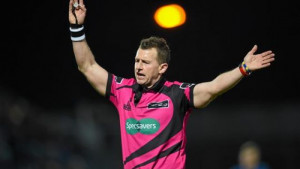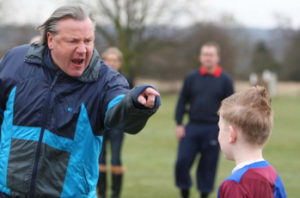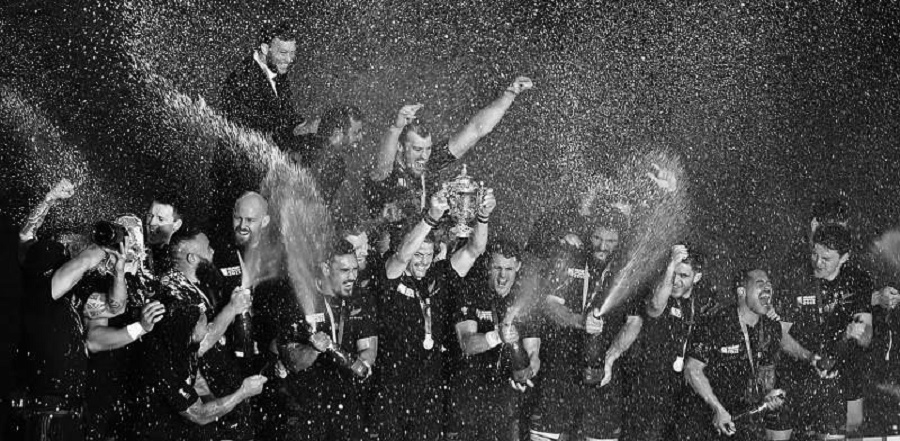Success, in any sport or discipline is not a result derived overnight. It requires thoughtful planning, a competent resource pool, infrastructure, and most importantly down right hard work and commitment.
New Zealand’s pride and joy, the All Blacks have just created history by notching up 18 consecutive Test match wins, with eth latest coming against arch rivals Australia over the weekend. Many would point to superior skill level, as well as a vast player base as the reason why the All Blacks are out of sight from the chasing packing pack today. However, there is much more than that which meets the eye.
A weekend ago, the third leg of the Asian Sevens championship arrived on our shores, with Hong Kong looking to put the finishing touches to a what had been a very successful competition for them. The Sri Lankan team have also made significant strides over the last year, and came very close to upstaging the foreigner-powered Hong Kong outfit in that final of the first leg. However, from a very promising start (in that first leg), the Sri Lankan challenge seemed to falter as the series progressed. In our home tournament we ended up a disappointing 4th, losing to China twice along the way. Why that happened, I’m not too sure. I feel it is more a case of our boys not playing at that high level of intensity often enough. It’s one thing to have a good outing, but to be consistent over a period of time is a different challenge altogether.
t Nevertheless, I believe the SLRFU is on the right path. We have a good coaching structure in place, and overall a more professional approach to our rugby. If Japan and Hong Kong are our aspirational targets, we now have to look over our shoulder at newcomers China. They have no expatriates playing for them, and you can say they are still a bit raw with the finer points of the game. But they have all the makings of a side that can mount a serious challenge in the next five years. I suppose this is good for Asia and world rugby as a whole. Before long, we can hopefully see two sides in Asia given a slot at the Rugby World Cup.
Back to the game over the weekend. It was a dead rubber in terms of the Bledisloe Cup. But a trans-Tasman contest is never short of any spice, and with the carrot being a world record of 18 straight wins looming, it was all to play for. After a relatively poor season, the Wallabies needed a good performance to take some momentum into their grand slam tour of Europe coming up. As it turned out, I felt the Wallabies played their best rugby all season. Though falling back 10-0 early on, the Wallabies did well to stay in the game. The biggest turning point in the game came in the 45th minute. After some exceptional play by the Wallaby backline where they put men in spaces, Henry Speight galloped down the touchline to touch down by the right corner flag. That took the score to 15-all with the conversion to come. 
Things just didn’t seem to go the Wallabies way. However, they have only themselves to blame for letting the game truly get away from them towards the end. Bernard Foley missed some crucial penalty kicks which were simply put ‘dollies’ by international standards. And then, they made the cardinal mistake of turning the ball over. You do this, and the All Blacks will punish you. The final score line that read 37-10 was perhaps not reflective of the titanic battle it was up front. However, the fact is that the All Blacks ran down six tries, to one.
Coming back to my earlier point, what makes New Zealand such a dominant force in the game of rugby? If you watched any of the Mitre 10 cup games, which was formerly now as their NPC, you would have some sort of a clue. The skill level between forwards and backs are pretty much on par. They play the game to enjoy it, and are more than willing to chance their arm by launching an attack from within their own ‘22’.
I watched short video recently on their rugby development at school boy level. There were some interesting takeaways. One being that each school generally has about three teams at every age level. Rather than pack their best players into the ‘A’ team, they spread their players equally (in terms of ability) across all three teams. This way, the weaker players improve while playing with the better ones. Interesting!! Overall, their programs center a round giving all players as much opportunity as possible to play in games, rather than just expect them to turn up for practice day in and day out. Once you get things right at grass 













